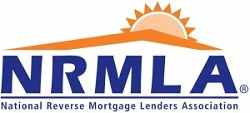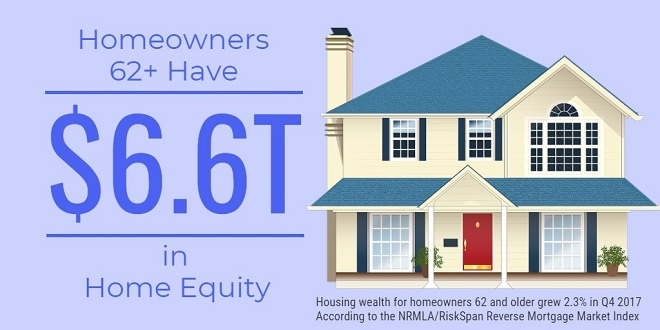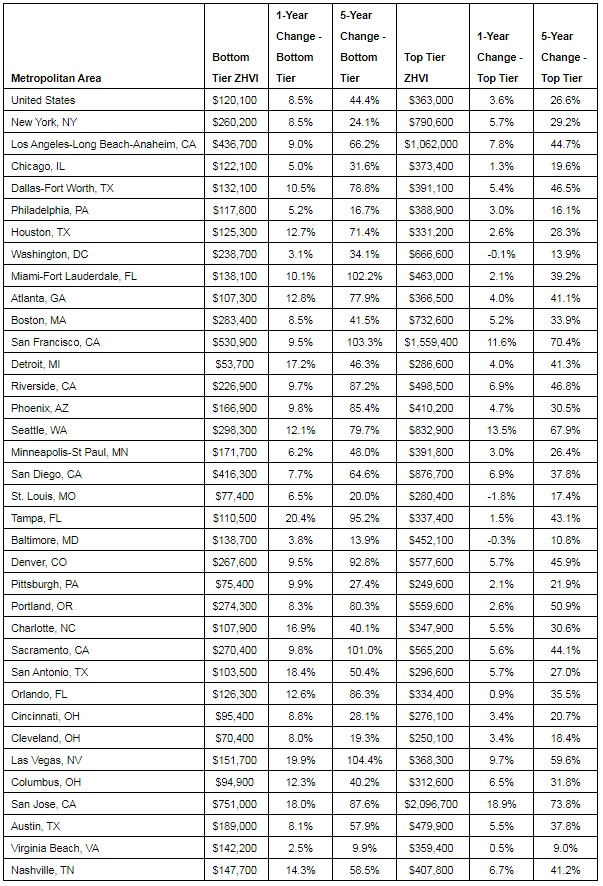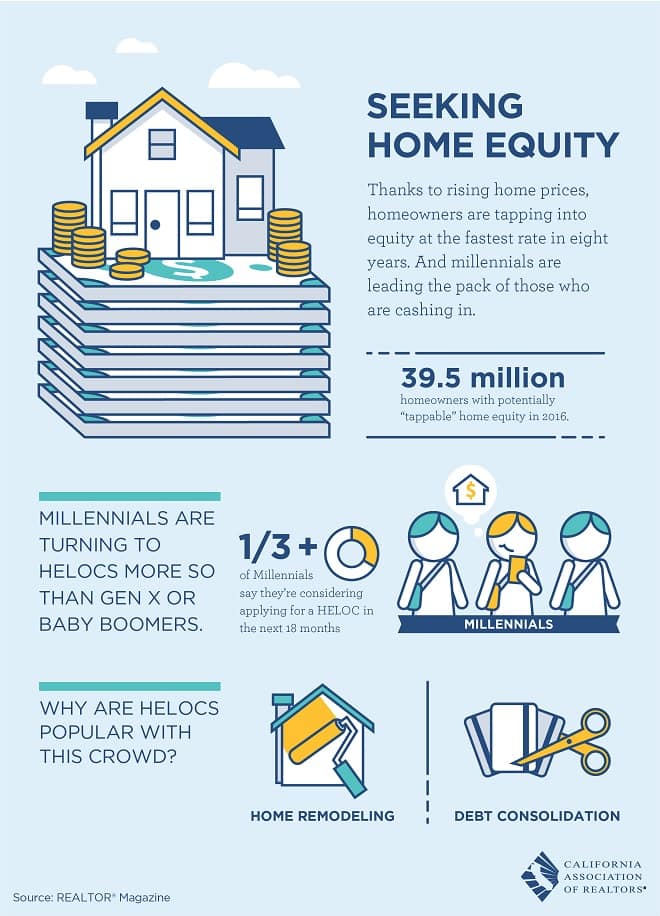Senior Home Equity Grew by $149 Billion in Fourth Quarter
Washington, D.C. – March 27, 2018 (PRNewswire-USNewswire) Housing wealth for homeowners 62 and older grew to $6.6 trillion in Q4 2017, an increase of $149 billion in senior home equity over Q3, reports the National Reverse Mortgage Lenders Association today in its quarterly release of the NRMLA/RiskSpan Reverse Mortgage Market Index.

The RMMI rose to 238.11 in Q4, another all-time high since the index was first published in 2000. Driven by an estimated 2.0 percent, or $163 billion, increase in home values, gains in senior housing wealth were offset by a 0.9 percent, or $13.4 billion increase, in senior-held mortgage debt. On an annual basis, the RMMI increased by 8.3 percent in 2017, compared to an annual increase of 8.0 percent in 2016 and 8.5 percent in 2015.
“Today’s retirees are more likely to leave the workforce with a mortgage and other debts that can put stress on monthly cash flow,” said NRMLA President and CEO Peter Bell. “In these situations, financial products that convert home equity to cash could be used to pay off revolving debt from credit cards and reduce or defer monthly mortgage payments. It’s worth doing the math to find out if a mortgage refinance, home equity line of credit, or reverse mortgage loan can help increase financial security during retirement.”
Research from the Ohio State University shows that reverse mortgage borrowers often use loan proceeds to pay off an existing mortgage, and nearly a third use funds to pay down other debt, such as credit card balances or personal loans.

On April 24, 2018 at 3:00 PM ET, NRMLA and Next Avenue, the public media website for America’s booming older population, will host a free webinar Q&A to answer consumer questions about using home equity to supplement retirement savings and support aging in place. Experts from Blue Ocean Global Wealth, Magnify Money, the National Council on Aging, and NRMLA’s Education Committee, will explain housing wealth and what the term home equity means, how it can be tapped, and situations when it may make sense to incorporate home equity into a retirement financial plan.
Registration details are available on NRMLA’s consumer education website reversemortgage.org.
About Reverse Mortgages
Reverse mortgages are available to homeowners age 62 and older with significant home equity. They are a versatile financial tool seniors can use to borrow against the equity in their home without having to make monthly principal or interest payments as with a traditional “forward” mortgage or a home equity loan. Under a reverse mortgage, funds are advanced to the borrower and interest accrues, but the outstanding balance is not due until the last borrower leaves the home, sells or passes away.
To date, 1,079,654 households have utilized an FHA-insured reverse mortgage to help meet their financial needs. For more information, please visit www.ReverseMortgage.org
About the National Reverse Mortgage Lenders Association
The National Reverse Mortgage Lenders Association (NRMLA) is the national voice for the industry and represents the lenders, loan servicers, and housing counseling agencies responsible for more than 90 percent of reverse mortgage transactions in the United States. All NRMLA member companies commit themselves to a Code of Ethics & Professional Responsibility. Learn more at www.nrmlaonline.org.
About RiskSpan, Inc.
RiskSpan offers end-to-end solutions for data management, risk management analytics, and visualization on a highly secure, fast, and fully scalable platform that has earned the trust of the industry’s largest firms. Combining the strength of subject matter experts, quantitative analysts, and technologists, the RiskSpan platform integrates a range of data-sets–including both structured and unstructured–and off-the-shelf analytical tools to provide you with powerful insights and a competitive advantage. Learn more at www.riskspan.com.
Contact:
Jenny Werwa – National Reverse Mortgage Lenders Association
(202) 939-1783
jwerwa@dworbell.com



